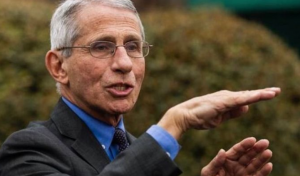The EU will unveil Wednesday a proposed European vaccine pass to ease travel, an idea pushed by tourist hotspots such as Greece that are desperate to save their crippled economies.
The proposal by the European Commission, the EU‘s executive arm, would create a digital certificate to show at airports and border crossings to prove that the traveller has received the precious jab.
The idea is to allow inoculated tourists to get around restrictions on non-essential travel that have spread across Europe, as a second and third wave of COVID-19 infections brought much intra-EU travel to a standstill.
“We don’t call it a vaccine passport we call it a green digital certificate,” EU commission spokesman Eric Mamer said Tuesday.
“It is a document that will describe the medical situation of the individuals who hold this certificate.”
The plan, however, will face stiff resistance from many member states, a key concern being that those still awaiting vaccinations would be discriminated against.
Europe is trailing the United States and Britain in its vaccination campaign, with deliveries of doses delayed and some countries worried about the safety of the AstraZeneca vaccine.
According to the latest count by AFP, only 3.5 percent of the European population has been fully vaccinated.
The commission’s plan is “very ambitious” with some “very difficult” questions yet to be resolved, said a senior EU diplomat.
Some member states are worried that the legal path to create the pass, which would include approval by European Parliament, will take too long, with the summer holidays just three months away.
The Commission is “working to have it done by June”, Internal Market Commissioner Thierry Breton said on Sunday.
In addition, Hungary and the Czech Republic will fight to ensure vaccines not yet approved Europe-wide, such as Russia’s Sputnik V, will be part of the scheme.
In the commission’s proposal, member states would decide which vaccines to recognise.
Finally, some will be wary of Brussels using the Covid crisis to grab power from national governments, with civil liberties under threat.
Health matters in Europe have traditionally remained a national matter.
“Vaccination can’t be the only way to unlock all sorts of freedoms when there are people who can’t or won’t get vaccinated — often through no fault of their own,” said Israel Butler of the Civil Liberties Union for Europe.
alm-pe-arp/dc/jxb






